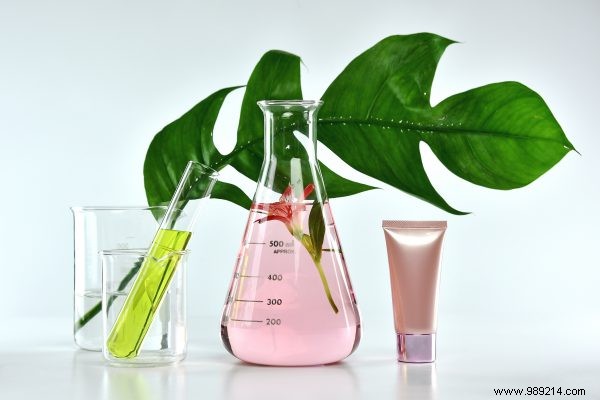
As little chemical junk as possible, as much natural and vegetable ingredients as possible. Exactly what makes your skin happy. But what about natural cosmetics? How do you know if it is really natural?
Does the label of your cream, cleanser or mask say 'natural', 'all natural' or something similar? Then there is a good chance that it does not contain substances such as perfume, alcohol and parabens. But it is possible, because the term 'natural' says nothing about the exact composition of your cream. Manufacturers may already state this on the bottle if there is only one natural ingredient in the product.
Read also: 'This is how you organize a spa evening with products from your own kitchen'
The way to become wiser:figuring out the label. Do you have sensitive skin? Then it is better to avoid chemicals such as perfume, denatured alcohol and sodium lauryl sulphate (SLS). But also pay attention to the ingredients with a natural care product, because although extracts of lavender, mint and ylang ylang smell nice, they can have an irritating effect.
Natural beautifiers that you can use without worry and that are even proven to do your skin good, include green tea extract, soybeans, grapeseed oil, oatmeal and the soothing licorice root.
In short:natural is not necessarily better for your skin. Nowadays, very stable synthetic substances are produced in the laboratories that benefit your skin greatly, such as vitamin C and vitamin B3. Combine these substances with mild, natural ingredients (almond oil, coconut oil, aloe vera, sunflower oil) and you're good.
… the position on the ingredient list tells you how much of a substance is in a product? The higher up on the ingredient list, the more of it there is in the product.
So a cream might be touted as "natural," but if the natural extracts dangle at the bottom of the ingredient list, that promise isn't worth all that much. Rather look for 'green' products where the natural ingredients are at the top.
Recommendations